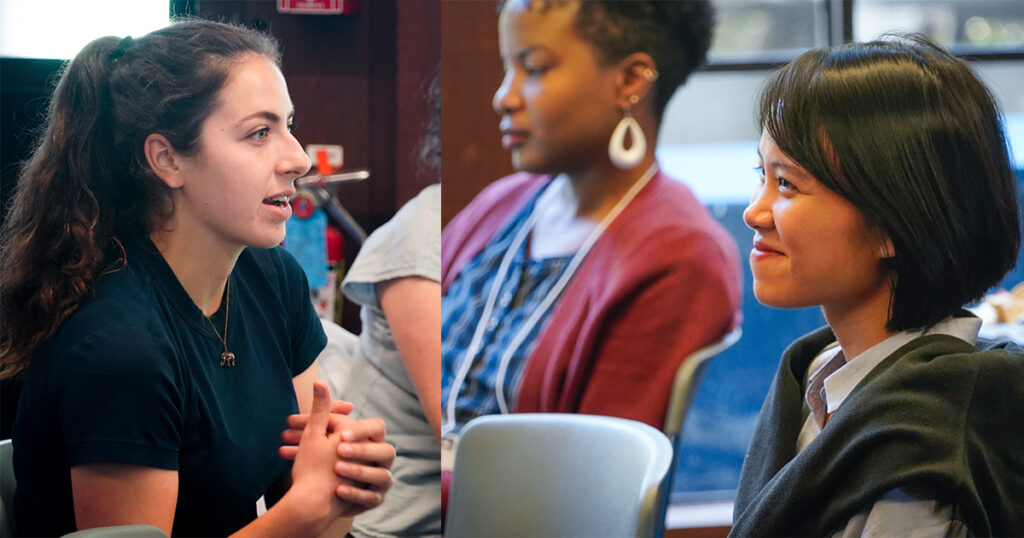The UC Berkeley Oral History Center is pleased to announce that applications are open for the 2024 Introductory Workshop!
The OHC is offering online versions of our educational programs again this year.
Introductory Workshop: Friday, March 8 from 8:30 a.m. to 2:30.p.m. Pacific Time, via Zoom
The 2024 Introduction to Oral History Workshop will be held virtually via Zoom on Friday, March 8, from 8:30 a.m. to 2:30.p.m. Pacific Time, with breaks woven in. Applications are now being accepted on a rolling basis. Please apply early, as spots fill up quickly.
Apply for the Introductory Workshop.
This workshop is designed for people who are interested in an introduction to the basic practice of oral history and in learning best practices. The workshop serves as a companion to our more in-depth Advanced Oral History Summer Institute held in August.

The workshop focuses on the foundational elements of oral history, including methodology and ethics, practice, and recording. It will be taught by our seasoned oral historians and include hands-on practice exercises. Everyone is welcome to attend the workshop. Prior attendees have included community-based historians, teachers, genealogists, public historians, and students in college or graduate school.
Tuition is $150. We are offering a limited number of participants a discounted tuition of $75 for students, independent scholars, or those experiencing financial hardship. If you would like to apply for discounted tuition, please indicate this on your application form and we will send you more information. Please note that the OHC is a soft-money research office of the university, and as such receives precious little state funding. Therefore, it is necessary that this educational initiative be a self-funding program. Unfortunately, we are unable to provide financial assistance to participants other than our limited number of scholarships. We encourage you to check in with your home institutions about financial assistance; in the past we have found that many programs have budgets to help underwrite some of the costs associated with attendance. We will provide receipts and certificates of completion as required for reimbursement.
Applications are accepted on a rolling basis. We encourage you to apply early, as spots fill up quickly.
If you have specific questions, please contact Shanna Farrell (sfarrell@library.berkeley.edu)
About the Oral History Center
UC Berkeley’s Oral History Center, or the OHC, is one of the oldest oral history programs in the world. We produce carefully researched, recorded, and transcribed oral histories and interpretive materials for the widest possible use. Since 1953 we have been preserving voices of people from all walks of life, with varying perspectives, experiences, pursuits, and backgrounds. We are committed to open access and our oral histories and interpretive materials are available online at no cost to scholars and the public.
Sign up for our monthly newsletter featuring think pieces, new releases, podcasts, Q&As, and everything oral history. Access the most recent articles from our home page or go straight to our blog home.